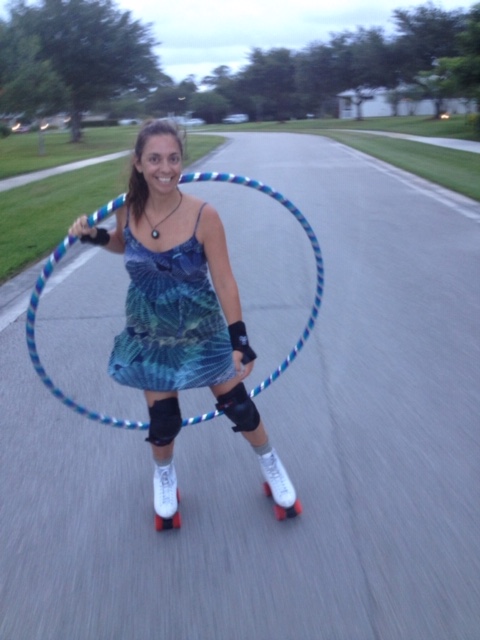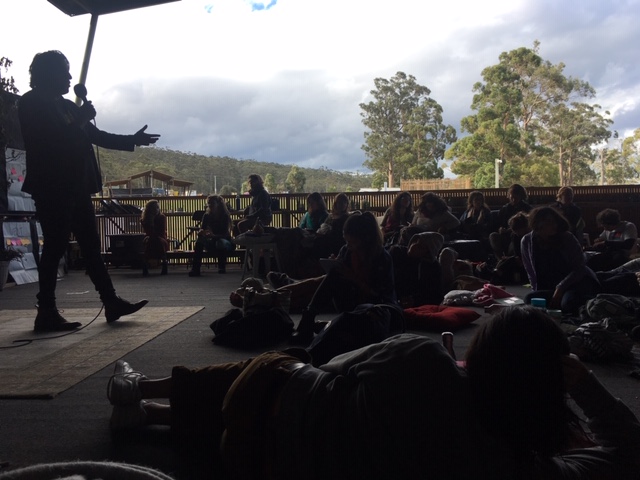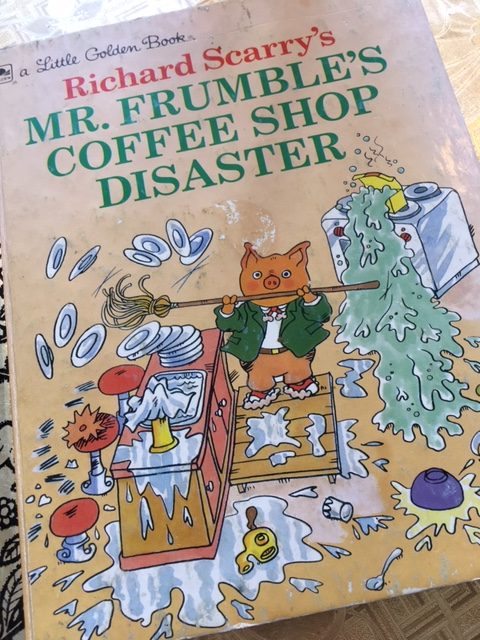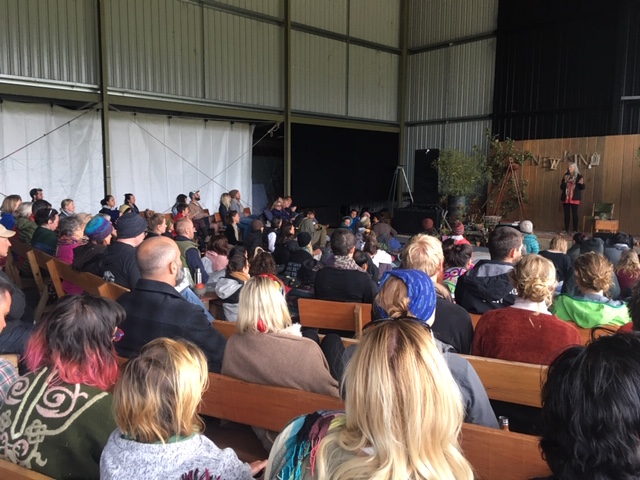This morning at the Newkind Festival, after a yoga class with a DJ dropping some electronic beats and a big bowl of vegan berry porridge and muesli, I wandered over to a panel discussion entitled “Teaching Peace.” The question raised to the experts on the panel was how we ought to create a school system that creates a generation of peaceful, caring children.
I come from a long line of educators. My mother was an elementary school principal, and my father was a high school economics teacher before becoming a copywriter. My grandfather was a principal, and my grandmother was a teacher, too. Education is important in my family, and I was lucky to be raised by parents who read to me and encouraged me in school. I attended a good private school, even though clearly the rest of my classmates were much richer than I was. It was cool to be smart in my school, and I had the opportunity to be lead in plays, captain of my field hockey team and editor of the literary journal. I graduated with honors and went on to graduate Phi Beta Kappa from a good university, which I thank my other grandfather – an investment wiz – for buying IBM stock when I was a kid. That stock was cashed in for my education. I actually graduated university early and began a career in journalism, which had me learning new things almost every day.

School was a success for me, but the take-home message of the panel discussion today was that school is a source of a lot of society’s problems. Kids aren’t encouraged to follow paths that interest them. Instead, they are forced to learn a lot of stuff they’ll never need “in the real world,” and many become institutionalized. Psychologist Robin Grille talked about how school made kids “resilient,” which was simply another way of saying it prepared kids for the drudgery of a workplace.
I have mixed feelings about this. The structure of the modern-day school system creates a foundation of a work ethic that is needed in the adult world. As a freelance writer and marketing consultant, I love the freedom that my job gives me. After 20 years, I can choose the clients I am interested in. But somedays, hey, I’d much rather take a walk in the woods. I’d rather kick back and play my ukulele. My years of school taught me that sometimes you have to do stuff you don’t really want to do. That’s just a fact of life in this modern economy.
But then, when I was sailing, I saw a bunch of kids from sailing families who were homeschooled. By the age of 5, they were not only driving the dinghy, they were taking apart the outboard motor. These kids were learning lessons that immediately applied to everyday life. Due to the close proximity of their parents/teachers, they’ll learn stuff like how to be financially stable and how to cook healthy food. Many kids today graduate and never learned these basic life lessons – and we wonder why so many flounder.

Socially, school can be extremely difficult, especially for children who are outside the norm. Schools that are overcrowded make it almost impossible for teachers to provide individualized attention that students need. All the compulsory testing of particular skills often forces teachers to skip over important lessons – and perhaps this is the heart of the matter. There are some things that are not taught in schools that need to be taught somewhere.
Children need to learn empathy and critical thinking. They need to be able to challenge authority in a constructive way. They need to learn the joys of positive debate and the ability to work collaboratively with those who are different than they are. They need to learn compassion.
Educator Melanie Lotfali was also on the panel. She talked about the importance of spiritual education for children. She told the audience about how she offers an exercise to children where she gives them a bowl of dirt and asks what it is. “It’s dirt,” they’ll say. Some smarty-pants will point out the sticks or the little pebbles. Then she’ll ask them to dig around in the dirt. She’d hidden gemstones at the bottom of the bowl, and the kids get excited to find them.
“Those bowls of dirt are like people,” she tells them. “The gemstones are kindness and goodness. Sometimes, in people, it’s very difficult to find the gemstone, but it’s always there.”

When children have meaningful spiritual education (and I’m certainly not talking about the weird brainwashing I got from Catholic classes as a kid), they learn to respect themselves and others. They understand their place in the world better. They build the capacity to investigate reality and cooperate with others.
My mother, the retired principal, is now a spiritual advisor to adults. There are a lot of adults who are troubled – and that, I think, is an even bigger issue. Troubled parents raise children who are bullies, who don’t know how to care for another and who enter the adult world as mean-spirited, self-centered robots. Who could blame them? Their parents are the same. I believe the root of this problem – that so many people work jobs they hate, drink too much to “escape” their lives and live unhealth, TV-centered lives – is because of the multi-generational cycle of trauma in troubled families.
I used to work for an after-school program, so I know how amazing, curious, kind and creative kids can be. I also know how troubled they can be. No child is ready to learn if they’re not eating enough nutritious food, if they witness or are a victim of domestic violence, if they live in a house with an alcoholic or drug addict, if their parents are too busy working a bunch of jobs to show that they care. Children need to feel special. They need to be cared for. They need positive adult role models.
Can teachers be those role models? Perhaps. But there is a lot of work that needs to be done in the classroom. In the age of the Internet, children can look up just about any information. But that doesn’t mean that certain historical topics and concepts should not be introduced. Just because babies are playing with iPads now doesn’t mean that children shouldn’t take math classes. Fundamental skills taught at an early age pave the way for success. Yes, lessons can be taught more creatively. But kids need to be guided down the path.

It’s a given that parents need to play a big role in the development of their children, but not every parent has the ability, the resources and the time to be a good parent. I imagine this is where the rest of the village comes in. Communities that foster families supporting one another can help bridge the gaps where school and parents fail. In Australia, there are active community centers in nearly every town. Ballerinas scurry down hallways that lead to art classes or other workshops. Perhaps this kind of resource, and the people who use these centers, can help create the peaceful, caring children who will grow into tomorrow’s enlightened world leaders.
